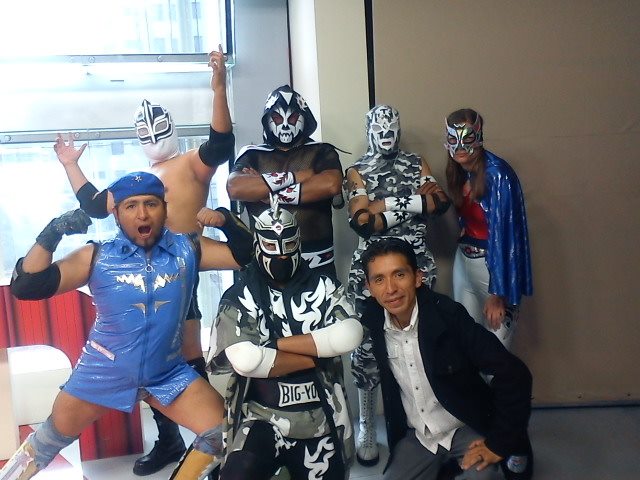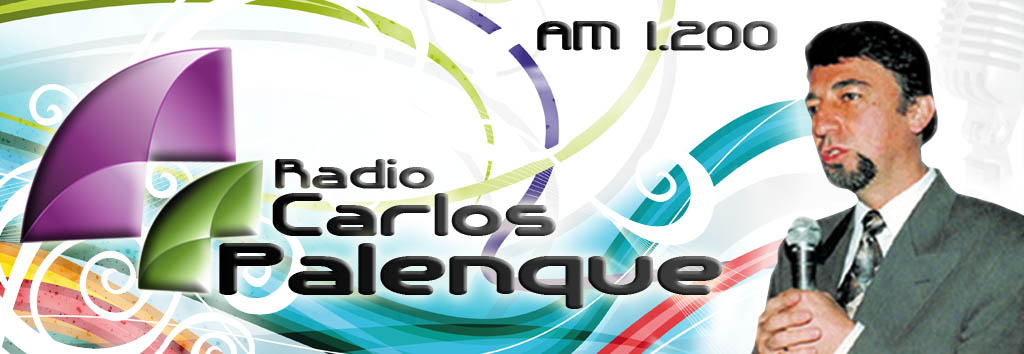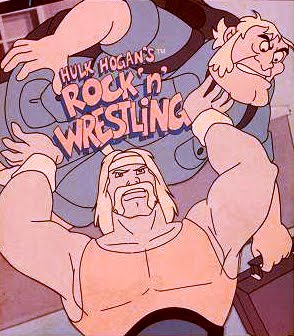Veronica herself then served in the Bolivian National Congress from 1997-2000. She first formed a radio station in 2000, with the objective to continue the line of social welfare, information, education, and training that Compadre Palenque (referring to her father) left behind as his principles, precents, and ideology.
“Red Palenque Comunicaciones, fue creada el años 2000, con el objetivo de continuar la línea de ayuda social, información, educación y entretenimiento que el Compadre Palenque dejara bajo sus principios, preceptos e ideología.”
In 2011 Veronica began the TV station, in response to the proliferation of pain, suffering, bad news, disasters, catastrophes, and negative news usually available on television. She decided to create a channel that emphasizes fun, entertainment, laughter, joy and positive aspects of life. Veronica explained, “El control remoto tiene que convertirse, a partir de hoy, en una ‘varita mágica’ que transporte al televidente a un oasis de entretenimiento y diversión, porque aquí sólo verá felicidad” [As of today, the remote control has to become a ‘magic wand’ to transport viewers to an oasis of entertainment and fun, because we only see happiness].
After our group recording, we each each recorded a short PSA style message for kids. These messages were not our own of course, but were scripted and handed to us to memorize about half an hour before recording. I am unfortunately left to talk about the scripts in a passive sort of voice, because they arrived to us on little pieces of yellow notepad, handwritten by someone other than the camera guy who passed them off. We did have to wait around for Veronica to arrive, and my previous experiences with her have shown that she is quite involved in most aspects of the station. So I would venture to say she was the source of the scripts, but I can’t say for certain. I would also guess that the handwriting was a woman’s, but I’m no expert on gendering based on script.
My little script was written in Spanish as “Practicar deportes, alimentarse sanamente, y alejarse de vicios son las claves de una vida exitosa. Ustedes pueden ser heroes. Es un mensaje de Lady Blade, junta con los Tigres del Ring. Estaremos pronto por Palenque TV.” But of course Omar wanted me to do it in English (I didn’t mind), so I translated it as “Practice sports, eat healthy, and stay away from drugs are the keys to a successful life. You can be a hero! This is a message from Lady Blade and the Tigres del Ring on Palenque TV.”
So yes, my little bit was chock full of certain moralizing messages that seem to conflate bodily health with some sort of emotional or social decency. And I suppose this is not surprising given the social welfare, information, education, and training espoused in the radio station’s mission statement. But what was especially interesting were the references to “our country” most of the other luchadores had in their scripts.
Luis’s was the most explicit. His went something like: “To support our beautiful country, Bolivia, we need to work hard and stay healthy.” Carlos’s began with “Drugs and alcohol destroy your life! But we can be heroes for our country, Bolivia by staying fit and respecting each other.” Edgar’s concentrated on keeping Bolivia beautiful by recycling, caring for water, and not polluting. Finally SuperCuate’s was short and simple, “The values of respect, education, and consideration make us heroes for Bolivia.”
This reminded me quite a bit of the “lessons” of Hulk Hogan’s Rock n’ Wrestling show from the 1980s. Indeed, US wrestling is often fraught with nationalist storylines which help to delineate heels from faces (villains from good characters). And nationalism has certainly had its place in my experiences wrestling in Bolivia. Primarily, I’ve had to walk a fine line promoting the US, but maintaining my status as a technica (good character). I wave at the kids, and they seem to love me, which helps. But when E came to visit and made an appearance as my partner on the program “La Revista," he played the rudo well, telling the Bolivians they had a lot to learn from the US where “real” wrestling takes place.
But I suppose meeting “them” where they’re at is a viable approach. And if luchadores are icons that kids look up to, encouraging them to take care of themselves, each other, their country, and the earth isn’t all bad. Especially given the fair amount of inferiority complex some Paceños I've met have about their country, perhaps encouraging a little nationalism isn’t entirely bad (though still complicated).



 RSS Feed
RSS Feed
